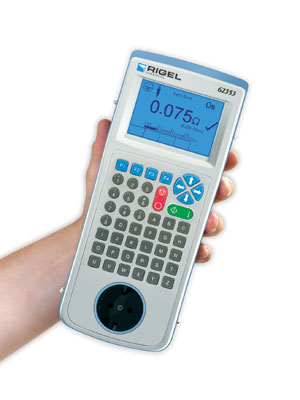This issue covers:
Interoperability standard for medical devices
The IEEE Standards Association has introduced a new standard as part of its work on enhancing interoperability between emerging eHealth technologies.
The latest standard, IEEE 2410-2015, is called the Biometrics Open Protocol Standard, or BOPS. The primary aim of the new standard is the protection of biometric data. BOPS was sponsored by the IEEE Communications Society and is applicable to data transmission from client device software (running on a smartphone, for example), ensuring that such data is sent to a trusted BOPS server and with an intrusions detection system in place.
The concern over mobile data extends to another standards development project now under way. This is the draft standard for ‘Enabling Mobile Device Platforms to be used as Pre-Screening Audiometric Systems (IEEE P26250)’, which has been announced alongside the draft standard for ‘Bio-CAD File Format for Medical Three-Dimensional (3D) Printing (IEEE P3333.2.5)’.
Meanwhile, a memorandum of understanding between the IEEE and the Regenstrief Institute is aimed at developing standards intended to ensure intercommunication between traditional medical devices and emerging personal medical devices.
As increasing numbers of such devices help to promote a mobile revolution in remote patient care, such standards could prove highly important to a new, emerging care landscape bridging the hospital and the home. Full details at http://findbiometrics.com
New Rigel SafeTest 60 for fast and effective testing of medical equipment
Rigel has introduced a new handheld safety analyser for the routine electrical testing of basic medical and laboratory equipment.
The new Rigel SafeTest 60 is a compact, robust and reliable safety analyser that is particularly well suited to high volume testing demands, with a simple colour coded user interface, push button operation and fast step-through of test routines.
The general purpose tester includes a comprehensive range of safety tests for hospital and medical equipment such as medical beds and chairs, operating tables, hoists, infusion pumps, CPAP’s, centrifuges and other similar equipment that does not require patient lead testing.
As such, the SafeTest 60 is suitable for electrical safety testing to ensure compliance with a range of international safety standards including leakage testing to IEC 60601, IEC 62353, IEC 61010 and NFPA-99.
In addition, to meet the needs of some specific types of equipment, the unit also has the capability to carry out insulation testing in line with IEC 62353 and accurate high current, low energy earth bond testing to both IEC 62353, NFPA-99 and IEC 61010.
In all cases, full manual control means only those specific tests that are required will be carried out, with minimised power breaks and full control of power cycles helping to ensure that testing is carried out quickly and efficiently – without any compromise in accuracy or integrity of testing.
The new Rigel SafeTest 60 is available in a wide range of power supply configurations to meet standard local operating conditions around the world.
Details at www.rigelmedical.com/safetest60
Watch a short video about the Rigel SafeTest 60 electrical safety analyzer
Updated overview of China’s medical devices sector
China now has more than 15,000 medical device manufacturers and the territory has become one of the most important markets for many multinational companies.
This is one of the headline facts from the China Medical Device Industry Handbook 2015, which also reports that the value of the Chinese medical device market reached $41.6 billion in 2014, with a CAGR of 28.4% in the past 10 years.
With this sort of growth China is now one of the most important markets for many multinational companies, with companies such as GE Healthcare, Philips Healthcare, Medtronic, Boston Scientific, and Stryker actively expanding their presence in the country via a series of strategic actions such as mergers and acquisitions, localisation and partnerships.
China’s government has released a series of policies and guidelines to support the local medical device industry in recent years, covering hospital procurement, medical device development and supervision.
However, it remains the case that more than 80% of China’s medical device companies have annual revenues of less than less than $3 million, with the leading local companies, such as Mindray, MicroPort and Unite Imaging, competing with the multinationals. In addition, as well as the local market, Chinese device manufacturers are also expanding global markets mainly in the Middle East, Africa, and South America.
The latest handbook provides a full review of China’s medical devices sector, including government regulations and guidelines, trade data, top companies, key events and healthcare statistics, as well as overviews of the key market segments.
Global growth forecast for wearable medical devices
The Global Wearable Healthcare Market was worth $3.3 billion in 2015 and estimated to be growing at a 17.7% CAGR, to cross $7.8 billion by 2020.
These are the topline findings of a new market research report from Mordor Intelligence, available at www.reportbuyer.com.
The “Global Wearable Medical Device Market – Growth, Trends and Forecasts (2015-2020)” report provides a comprehensive market analysis of all the main wearable device applications, ranging from monitoring blood sugar, glucose, chronic diseases such as heart diseases, diabetes and various other parameters.
Of the four main types of medical and health service solutions targeted by wearable medical devices, comprising of disease management, rehabilitation, health and fitness processes, and patient monitoring and feedback, the latter category accounted for more than 70% of the global wearable medical device market in 2015.
Taiwan seeks medical electronics boost
As part of plans to boost the international competitiveness of Taiwan’s medical electronics sector the country hosted a special forum recently to discuss major trends and developments in the industry.
The ‘Medical Electronics and Devices in Taiwan Forum (MEDiT)’ sought to provide a venue where global medical electronics players could share opinions and establish a cooperation platform which might lead to future business growth.
As part of the proceedings, Dr. Ming-ji Wu, Director General of Taiwan’s Industrial Development Bureau, pointed out that according to Business Monitor International, the worldwide sales of medical electronics totalled $340.3 billion in 2014 and would reach $405.3 billion in 2015.
Dr. Yio-wha Shau, General Director of Taiwan’s Biomedical Technology and Device Research Laboratories, stressed that the medical electronics market in the next decade will be closely linked to population ageing and personalised medicine.
Dr Shau said: “Taiwan’s medical electronics industry has accumulated many years’ experience in cross-fields integration and ICT manufacturing. “With these advantages, Taiwan can cooperate with leading international medical electronics companies to build up sustainable business models and create win-win business opportunities.” Full report
We’re at Arab Health in January
We’ve recently returned from a very successful Medica show in Germany, where we saw lots of interest in our exciting new product developments.
Our range of new electrical safety testing technology for both general purpose medical equipment and specialist medical devices, including the SafeTest 60, 288+ and 62353+ were the highlight of the Rigel display.
Catch us on stand MD33 in January (25-28th) at Arab Health, Dubai, for a chance to see our exciting new product developments plus our full range of advanced medical device performance analyzers, electrical safety analyzers and vital signs simulators.
More info www.rigelmedical.com/events/
Do you use Rigel Medical equipment? – If you think you may have a story for future e-news bulletins, please let us know by contacting us here.

 In line with changes in test requirements from manufacturers of 24V DC and 48V DC operated medical equipment such as operating tables and portable lighting installations, the new
In line with changes in test requirements from manufacturers of 24V DC and 48V DC operated medical equipment such as operating tables and portable lighting installations, the new 













